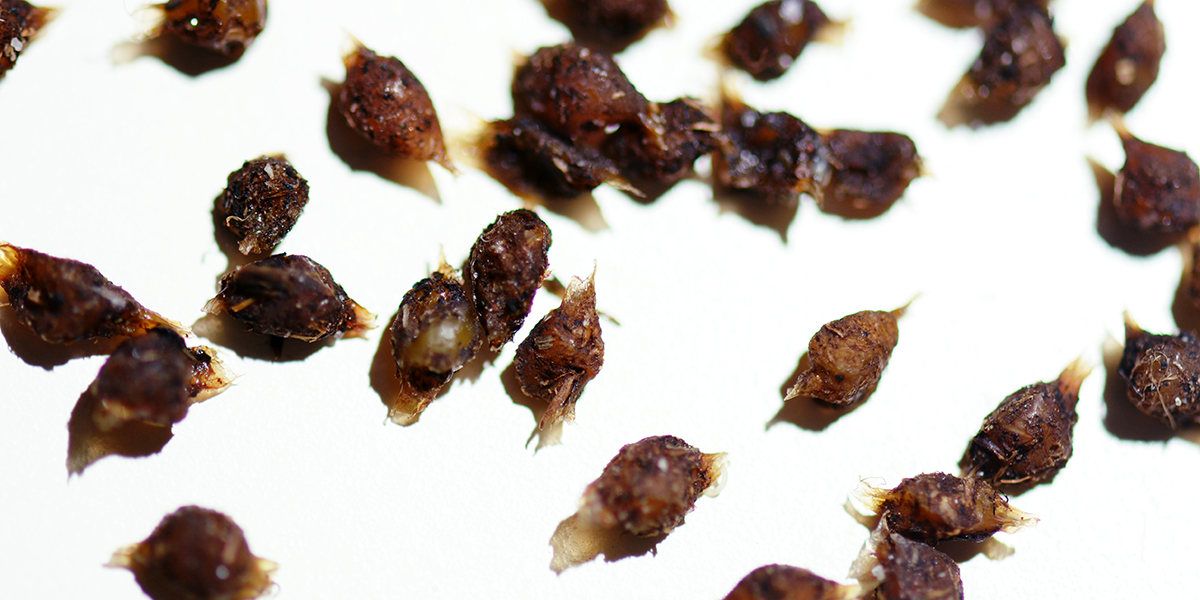
Cocoon Management
Size of Worm Cocoons
The cocoons are opaque, oval-shaped to a small point at each end, and very small – not much bigger than 1/8? in diameter. Because the cocoons are moist, the soil particles will stick to them, making them look like the particles of dirt. They will be difficult to see. Worm cocoons can be spread over the land at any time of year. However, the best time to introduce worm cocoons outside is during the spring, summer, or autumn when night time temperatures are above freezing and after the ground has been tilled or cultivated.
Note: Worms are very adaptive to different soil types. They thrive best in soils that receive annual applications of organic matter such as grass clippings, compost, or manure. If your soil is depleted, till in organic matter before applying the worm cocoons. The organic matter will serve as food and help retain moisture – an important requirement for both plants and worms.
Managing Cocoons
Scatter the worm cocoons and medium over the top of the soil in an 8′ x 10′ area. If possible, generally rake them into the tope 2 – 3 inches of soil. Water the soil thoroughly and keep it moist. Worms require moisture to breathe. If the soil dries out during the first month, you could lose some of your hatched worms.
Worm cocoons hatch with 2-3 weeks when the soil temperature reaches 70 degrees. Baby worms are small and whitish-pinkish when they leave the cocoon. Each cocoon egg produces 2-7 worms. Within 2-3 days, they begin to change color to eventually match their soil surroundings. Worms in a clay soil will be gray in color; worms in rich organic soil will be reddish purple. In a short 3 months, they will reach maturity and will begin to reproduce a second generation of cocoons. Worms burrow deep into the earth below the frost level. If your area of experiences severe winters without snow cover, the worms may have a difficult time finding unfrozen soil. Mulch your soil with straw, grass clippings, or leaves, or grow a green manure-like clover to help keep the soil from freezing. Apply the mulch in the autumn before frost penetrates the soil.
Managing the Earthworm Population
The successful management of worms depends on different factors. The heavy applications of inorganic fertilizers may cause immediate reductions in earthworm abundance. Furthermore, earthworms are not favored by tillage, and in general the greater the density and frequency of disturbance, the lower the population density or biomass of the earthworms. That is, earthworms are dependent on moderate soil moisture content, and cultivation tends to have a negative effect on earthworms by decreasing soil moisture. However, earthworm abundance increased in plots that received disk cultivation, or no-till treatment. Adding organic matter to the soil helps increase the worm populations.
The End Result
The goal is healthy, productive, living soil. From the egg to mature worm and back to next generation egg, the cycle naturally revitalizes the soil and sustains agriculture. Healthy plants grow in healthy soil. The incredible worm plays a major role in establishing a flourishing bio- system that is in harmony with nature.